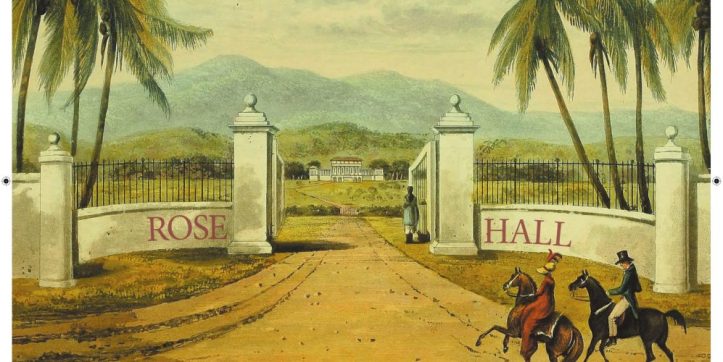
The play White Witch is worthy of interest for a number reasons. Written by Barry Reckord – a playwright who is one of the earliest Caribbean writers to make a contribution to theatre in Britain – White Witch takes places during the pre-abolitionist era in Jamaica.
Directed by Joseph Charles, the play begins with the return of sugar cane plantation owner Simon Palmer (Robert Maskell) from England. However, what starts the tongues wagging is his new wife Annie (Elisa Boyd) who is rumoured to have had a negro lover back in England and killed her brothers. All without hard proof of course…
If the rumours were disconcerting for Palmer’s slaves, the actions of the confident, forthright Mrs Palmer are alarming. Annie talks in private about sex as a natural activity, not under the jurisdiction or judgement of hypocritical men – a Lawrencian protofeminist with a mind of her own. In addition, she articulates reasons why slavery is on its way out and explains logically why women who were knowledgable (Heaven forbid!) were branded as witches. In short, she’s a woman out of time and that makes her ‘dangerous’.
Annie’s ‘Achilles heel’ however (if such a thing can be attributed to her) is that she’s fearless when it comes to flouting convention and behind her husband’s back sleeps with other men on the plantation: firstly with ‘house help’ Rhone (Charles Tomlin) and later with Cupid (Darien Charles) – Palmer’s mixed race son…

White Witch of Rose Hall (to uses the play’s full title) is based on a true story from the 18th century. However, Reckord’s play wasn’t written until 1975 and in term of the ‘taboo’ dynamic between Annie and the ‘lower classes’, bears more than a passing resemblance to Strindberg’s Miss Julie. Watching this particular production, I was reminded of Yaël Farber’s 2012 South African version of Mies Julie. As well as dealing with the central relationship between Jean and Miss Julie, it emphasised the unbreakable link between the indigenous people and the land, and the yearning to forge one’s own destiny.
Theatre company Thee Black Swan – who in 2015 produced Black Spartacus about the Caribbean uprisings that took place before the British abolition of slavery – have hit gold again in ‘rediscovering’ White Witch. The closest play to these in terms of addressing the Empire’s slavery trade has been Burnt Out Theatre’s Muscovado. That was two years. There is so much about that period that has yet to be explored and told – not just in Black History Month, but all year round. Small wonder really when heroines like Mary Seacole are still relatively unknown. Admittedly, White Witch on the surface deals mainly with the double standards of 18th century mores. However, the rocky road to emancipation seeps through every aspect of this tale and Annie herself, like Cassandra of legend, foresees the turbulent times ahead. A ‘witch’ indeed…
© Michael Davis 2017
White Witch runs at Chelsea Theatre, London until 30th April 2017.
http://www.chelseatheatre.org.uk/whats-on/white-witch/
CAST: Elisa Boyd (Annie Palmer), Robert Maskell (Simon Palmer), Helena Dowling (Chloe), Craig Abbott (Dawes), Lavern Archer (Princess), Darien Charles (Cupid), Nathan Thomas (Sammy), Merric Boyd (The Doctor).
Thank’s for great review from the white witch crew
LikeLike
You’re all very welcome!
LikeLike